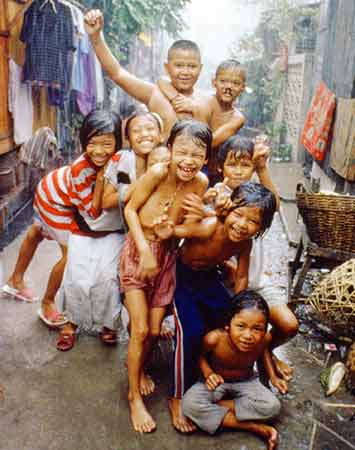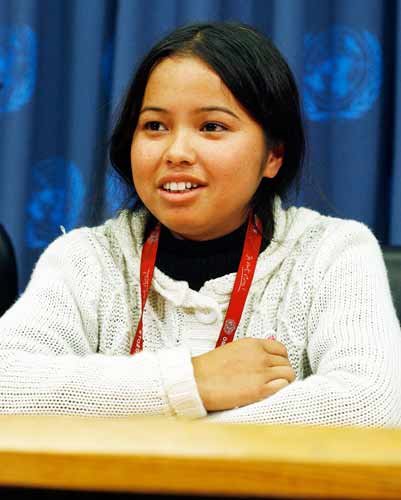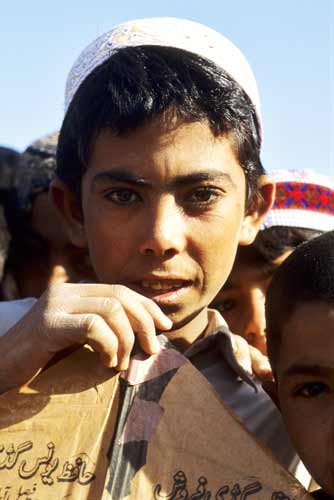Right to Freedom
Understanding Children’s Right to Freedom
Freedom is a sacred and inalienable right that all human beings possess. It is the power to act according to one’s will while respecting the law and the rights of others.
What are the freedoms of the children?
Personal and collective liberties
• Personal liberties : They correspond to the liberties that all individuals possess. The most fundamental personal freedoms are the freedom of speech, expression, movement, thought, consciousness, religion and the right to a private life.
• Collective liberties : They correspond to liberties for groups of people: freedom of association, peaceful meeting, collective labor and the right to strike.
These liberties are absolute but can be limited (restrictions to the liberties).
Freedom of the children
 Children have rights and liberties like adults. But children are more fragile and vulnerable than adults. So, until they become adults, the liberties of children are more restricted in order to ensure their security and well-being.
Children have rights and liberties like adults. But children are more fragile and vulnerable than adults. So, until they become adults, the liberties of children are more restricted in order to ensure their security and well-being.
Nevertheless, they have liberties which it is important to respect. It concerns mainly liberties of “citizenship”; the freedom of speech, expression and association, and “spiritual” or “religious” liberties; the freedom of thought, consciousness and religion.
The rights to liberty of opinion, expression and association of the children
Children have the right, as do the adults, to have an opinion, to express it and to meet in order to share their point of view.
Liberty of opinion
Children have the right to have an opinion different from their parents. While taking into account their age, as well as their degree of maturity and discernment, children have the right to have their opinion considered. States, communities and parents have the duty to listen to the children and to consider their opinions when the decisions concern them.
Liberty of expression
 Every child has the right to express freely their opinion on all the questions which concern his/her life. So a child should not be the victim of the pressure of an adult, who would try to force him/her in order to influence them in their opinion or who would prevent them from expressing themselves freely.
Every child has the right to express freely their opinion on all the questions which concern his/her life. So a child should not be the victim of the pressure of an adult, who would try to force him/her in order to influence them in their opinion or who would prevent them from expressing themselves freely.
The freedom of expression for the children also involves their right to be informed. It is the right of the children to know what happens and to access information which interests them. Then children can comprehend current problems, inquire and build up their own opinion on topical subjects.
Freedom of association
Like adults, children have the right to meet in order to consult and react on issues which directly concern their rights and their well-being, but also on news headlines which interest them.
Thanks to these liberties, children have the right to participate in the life of their society. (See: The stakes: the right to participation of the children)
The right of the children to liberty of thought, consciousness and religion
The children have the right, like the adults, to think freely and to adhere to the values, convictions and the religion of their choice.
Freedom of thought
The freedom of thought is the right for every person to determine freely, in its spirit, its conceptions and its intellectual and spontaneous representations.
The children are free to have thoughts which evolve and change according to their degree of maturity and discernment.
Freedom of consciousness
The freedom of conscience is a freedom halfway between the liberties of thought, opinion and the freedom of religion. This freedom, strictly connected to the ethical and philosophical convictions of a person, is the assertion that all human beings have a consciousness and a reason. So, the children are free to determine what will be the principles which will guide their existence.
Freedom of religion
 The freedom of religion allows every person to have the religion or the conviction of their choice and to show it freely. It is the right not to undergo constraint and oppression which would injure their freedom of religion or other rights.
The freedom of religion allows every person to have the religion or the conviction of their choice and to show it freely. It is the right not to undergo constraint and oppression which would injure their freedom of religion or other rights.
Children can freely determine the religion or the conviction of their choice, as soon as they reach a sufficient level of discernment. A religion doesn’t have to be imposed to them.
Find out More!

